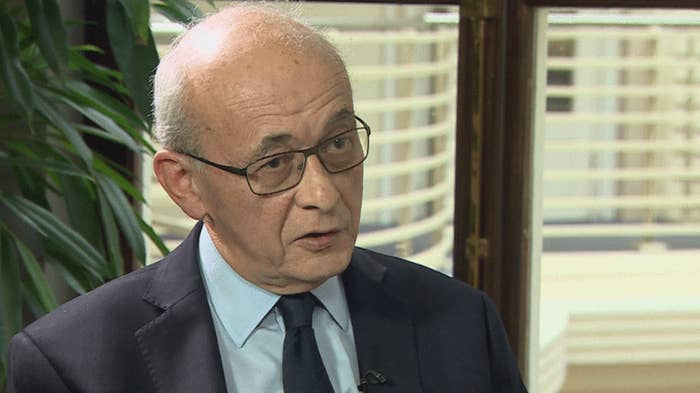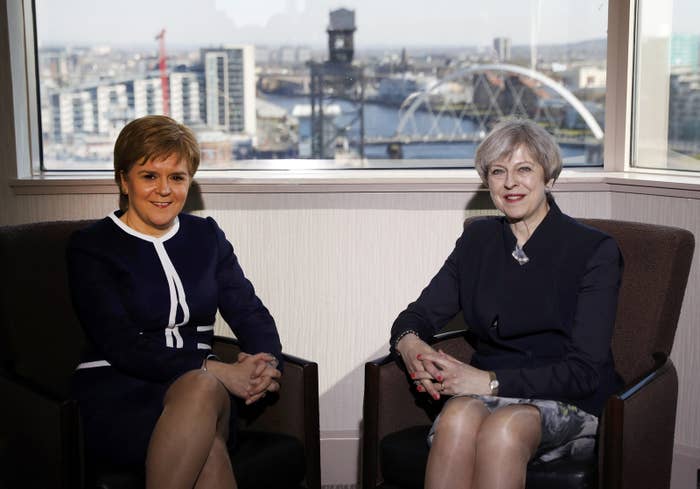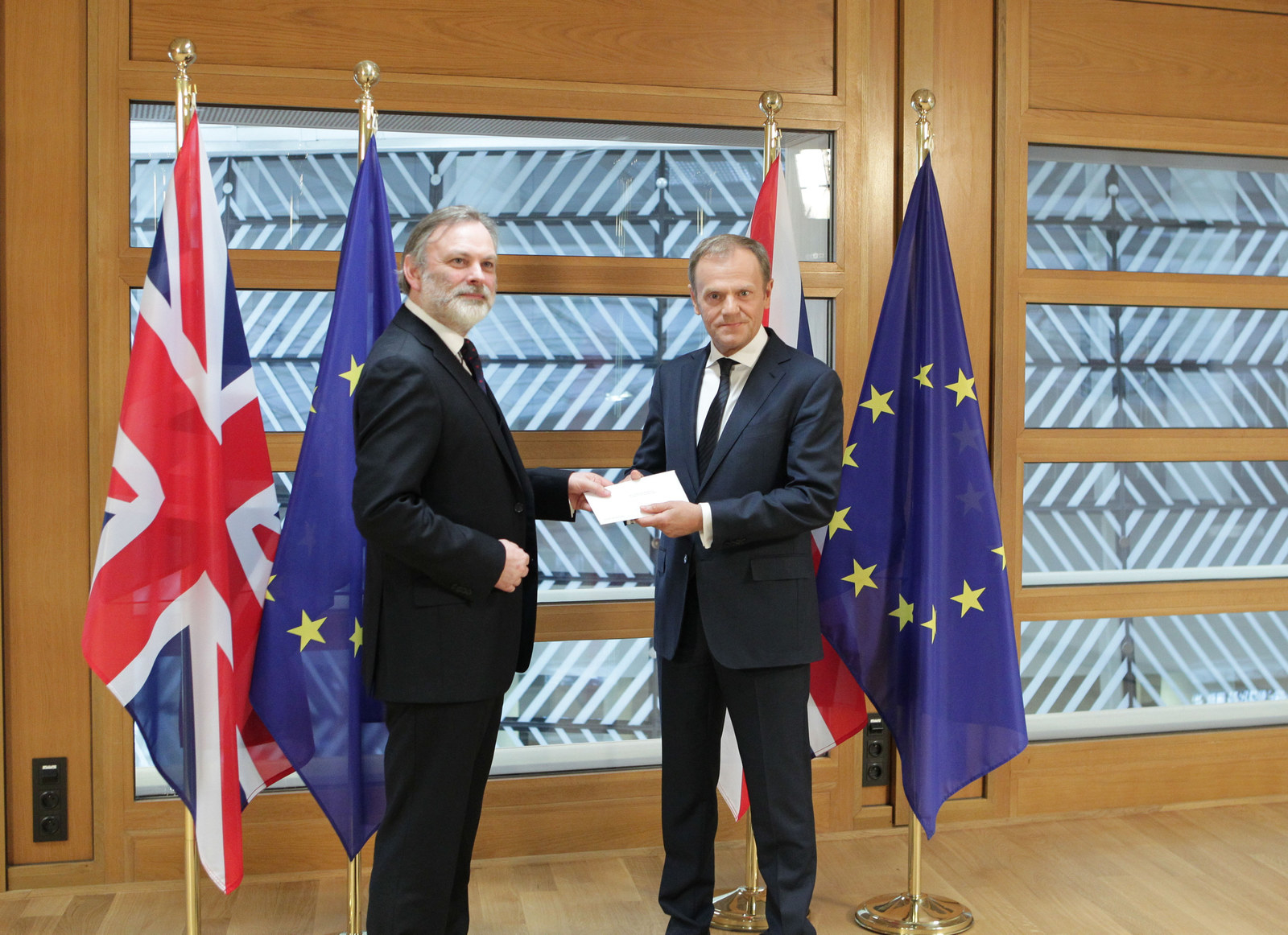
Arguments that an independent Scotland would be blocked from entering the EU are "balls", the author of Article 50 has told BuzzFeed News.
Lord Kerr of Kinlochard, who was the British ambassador to the EU in the 1990s, dismissed the assertion that an independent Scotland would have to "join the back of the queue" for EU membership, arguing that no such queue exists.
The peer also said Article 50 – which was triggered by prime minister Theresa May on Wednesday, beginning the formal Brexit process – could be revoked at any time, and it's feasible that Brexit negotiations will go beyond two years.
He added that, if Article 50 is followed correctly, negotiations over the divorce settlement between the UK and the remaining EU members must take place at the same time as they negotiate their future relationship.
Kerr, who grew up in Scotland, said that, while there is no provision which would allow Scotland to take over the UK's membership in the EU automatically, an independent Scotland's entry would be "very fast".
"The Scots have to leave the EU with the UK – if the UK leaves – then go independent," said Kerr. "Once they’ve been recognised all round as independent they can then knock on the front door marked 'accession'.
"That’s the bad news, but the good news is that it would be a very swift accession negotiation. The sort of rubbish people talk about – back of the queue, behind the Turks – that’s all balls because there is no queue.
"People who are declared eligible to join can join as soon as they’re ready to accept the whole of the acquis. Since the Scots would, presumably ... still be applying something very close to the existing acquis, they'd be in very fast."
The acquis – also known as the acquis communautaire – is the complex set of legislation, legal acts, and European court decisions that have accumulated in EU law since the inception of the union.

Kerr's statement goes against those from others, such as the most senior Spanish MEP Esteban Gonzalez Pons, that an independent Scotland would have to "join the queue after Montenegro, Serbia, Bosnia Herzegovina, Turkey".
Kerr, who supported a No vote in the Scottish independence referendum of 2014, said he's now "torn" over the question of Scottish independence, describing himself as "a depressed European and a depressed Unionist".
The peer went on to say his Article 50 is "perfectly revocable" despite its delivery in Brussels earlier this week, but that the UK would have to make some form of political concession to the rest of the EU if it chose that path.
He added that it's feasible that the two-year deadline for negotiations set out in the article could be extended, although only in circumstances such as a fresh general election or another referendum, which is ultimately unlikely.
"All of this is, in a way, academic," said Kerr. "It’s very hard to see the British political situation developing in a way which causes Mrs May or her successor to say: ‘Can I have the letter back please?’"
Kerr went on: "I think the idea of playing for time, extension after extension, because the negotiations aren’t going well – I don’t think that would work. But if there was a big democratic excuse, then yes, I think it would work."

Finally, Kerr addressed an argument that has erupted between May and the EU over the timescale of the two parts of the negotiation – the divorce settlement of money and assets, and the UK's future relationship with the EU.
May has insisted both take place at the same time, but German chancellor Angela Merkel said after Article 50's triggering on Wednesday that the divorce arrangements must happen first. Kerr believes lawyers will side with May.
"The way Article 50 is written means a divorce agreement would be legally vulnerable if there wasn’t in existence something called the framework," said Kerr.
"Article 50, paragraph two, requires the negotiators of the divorce to take account of the framework. The lawyers will be on Mrs May’s side and there will be concurrent negotiation, I think."
